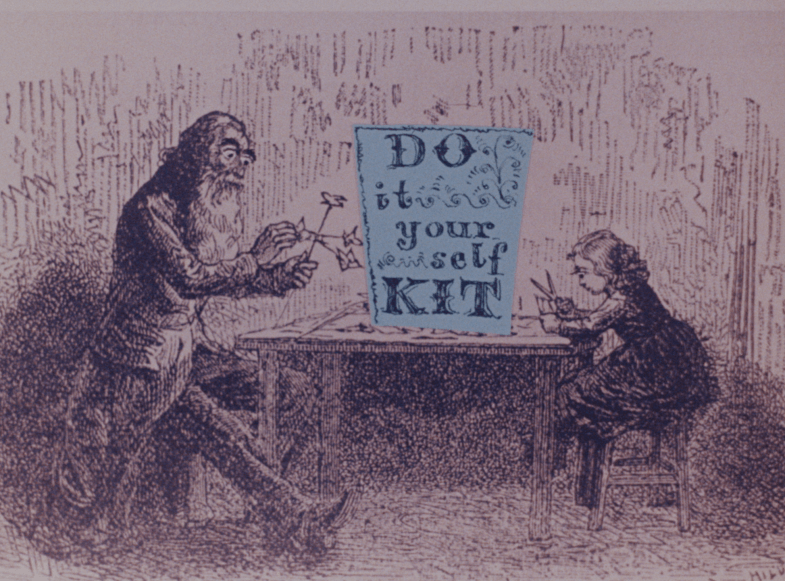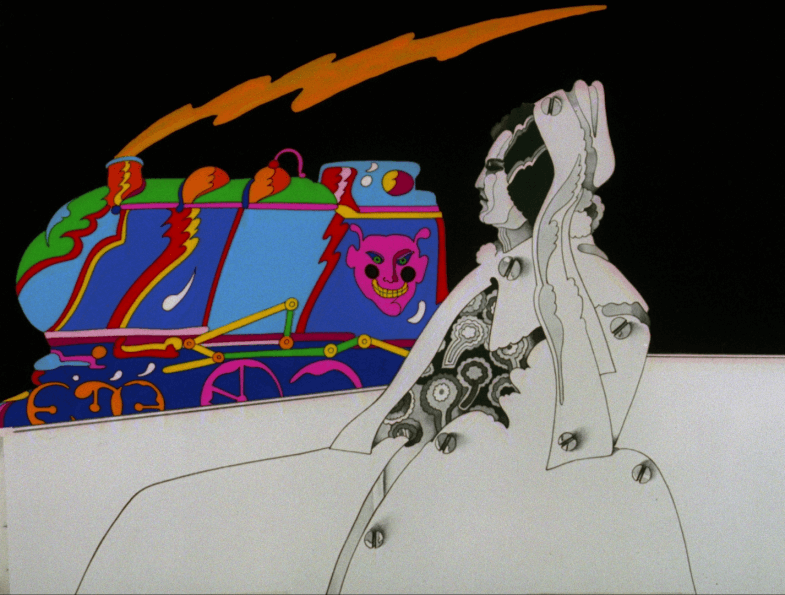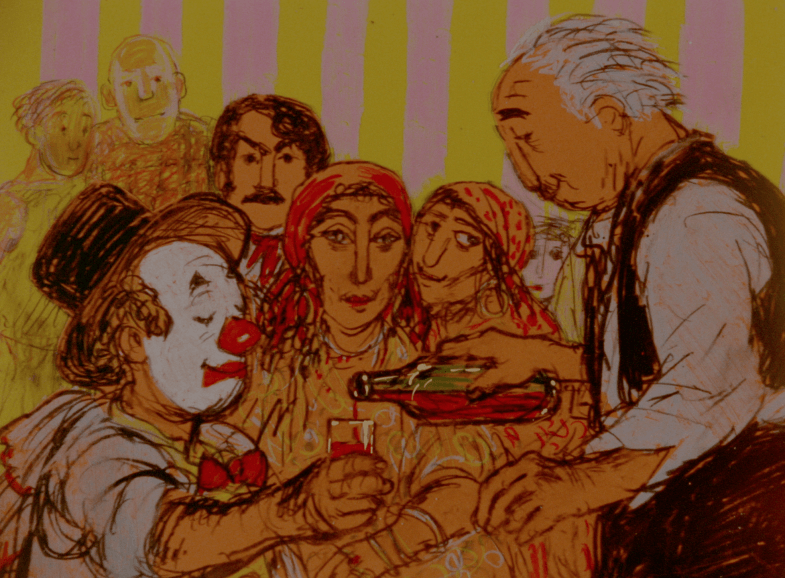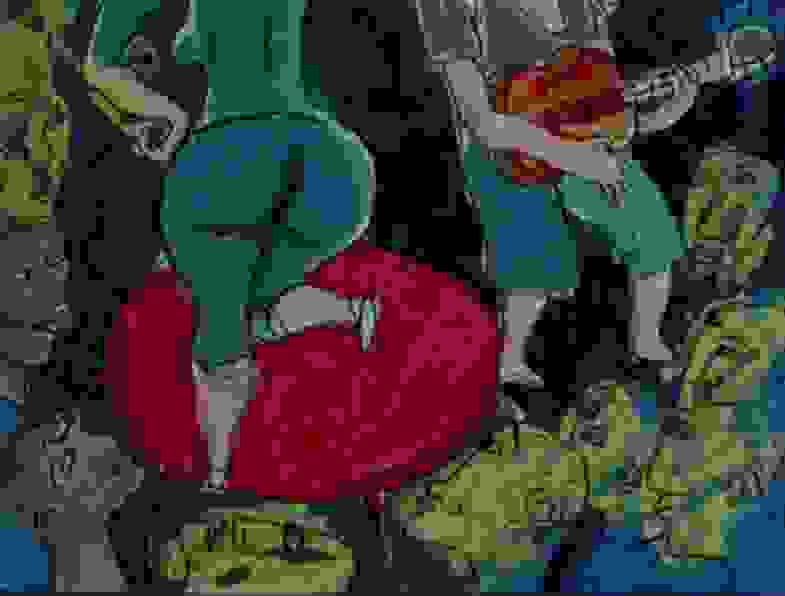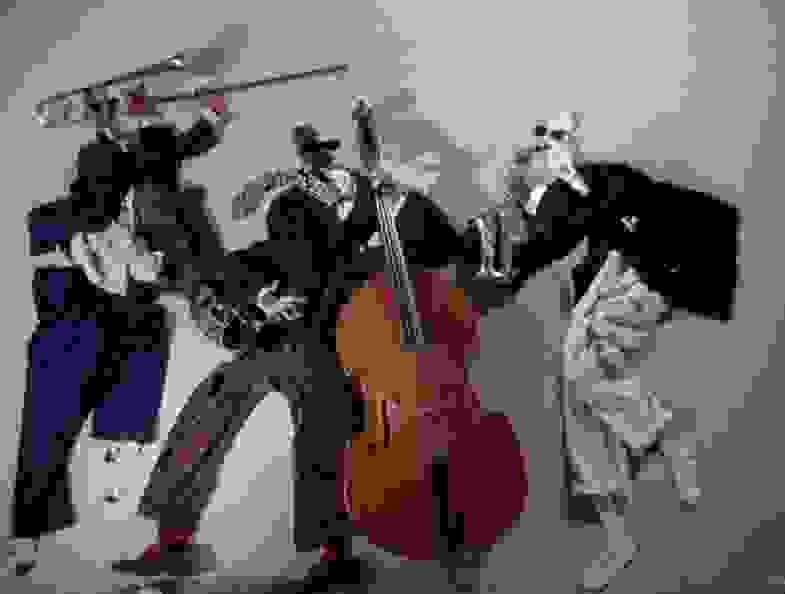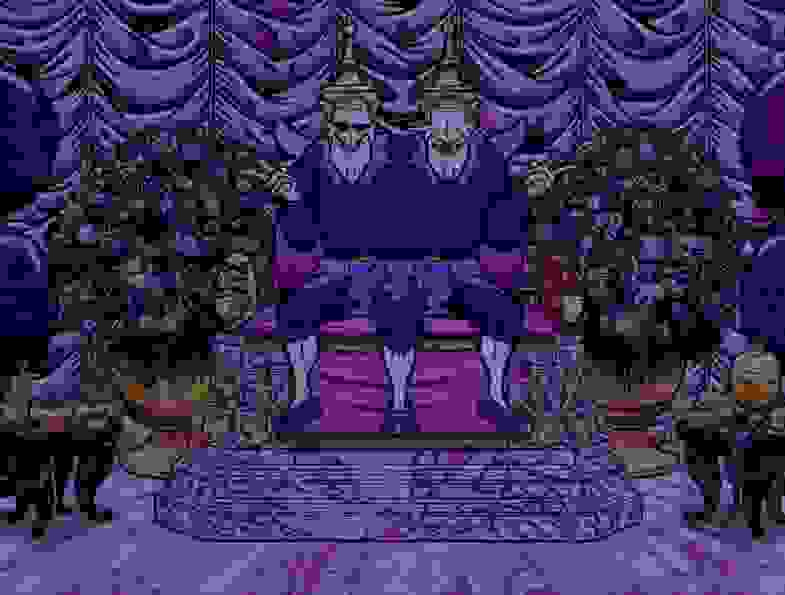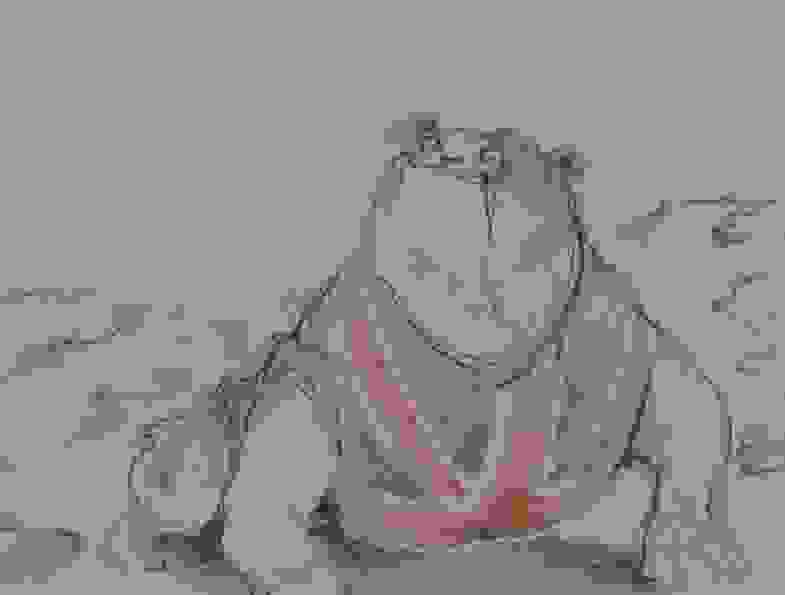Jealous Dolls and Brutish Bulldogs: Part 2
Welcome back. In part 1 of this article I mentioned the hopelessness of trying to cram the history of British animation in the 20th century into a single screening. But that trying to do so is a fun way to kick off debate around the subject. In rounding off this look at the selection of films in the second half of the programme you can see that it continues the theme of personal favourites, unexpected oddities and bona fide classics.
Do It Yourself Cartoon Kit (1959)
I’m not sure a screening of the history of British animation would be complete without this gem. It’s a favourite for many reasons, but principally because it pricks any bubble of pretention surrounding the art of animation in a knowing and affectionate manner. I love the fact that it was made with lo-fi charm by four innovative animators, two of them women, as a kind of collaborative exquisite corpse exercise over a bank holiday weekend. It’s an important antecedent of Goonish/Pythonesque humour expressed through animation, a decade before Terry Gilliam perfected such things. And I found the original negatives for the film stacked in the garage of one of the collaborators, Vera Linnecar. AND – most importantly – it’s still funny.
The Transformer (1968)
Who doesn’t love robots in disguise? This was a film I read about before seeing – an animated festival ident for the ground-breaking 1968 Cambridge Animation Festival produced by key creatives moving on from the production of Yellow Submarine (1968) – Heinz Edelmann, Charlie Jenkins and Alison De Vere. I was delighted to find that the separate picture and sound negatives had found their way to the BFI National Archive via a film laboratory clear-out in the mid-1990s, but whilst they were preserved they were inaccessible with no combined viewing copy.
When the HLF-funded Unlocking Film Heritage scheme [http://www.bfi.org.uk/britain-on-film/unlocking-film-heritage] came around and I was asked to curate a selection of British Animation for digitisation this was on the top of my list. And it was worth the wait – what I had previously only seen in a succession of negative images wound through on an examination bench came gloriously alive, and it became a natural addition to this programme. The disguised robot bit was a joke by the way.
Mr Pascal (1979)
It’s time to put Alison De Vere back on the map. It’s not that her work is necessarily unknown, her films were rightly lauded on release and today are fondly remembered and often cited. But if you were looking for a role model for young animators today, particularly female artists, then she is a shining beacon. Her career started back in the early 1950s, and yet her masterpiece The Black Dog (1987) was released in the year she turned 60. Her long career in commercial animation finally flourished in an astonishing trilogy of independent shorts that somehow each managed to top the other in truth, beauty and depth.
Mr Pascal is the middle film in that series, following the also excellent Café Bar (1975). Though outwardly a religious tale, with a lonely widowed cobbler taking sympathy on a crucified figure of Jesus, it is ultimately a human one. The spirituality of the film is in the reward for a simple act of human kindness.
Nightclub (1983)
Jonathan Hodgson’s career has often been associated with animated documentary, finding innovative and artful ways to illustrate the lives and perspective of others. This tendency might not be obvious at first glance in this early short made whilst studying at the Royal College of Art, but look again. This is not just any night club or a random cast of faces and bodies put together to fill the screen. These are animated sketchbooks documenting a succession of nights out in Liverpool, populated by a cast of usual suspects recognisable to those who were there with him. These real-life roots help capture the mood of those night’s out when a crowd can be a very lonely place to be.
Clothes (1988)
Another student short, but with a very different tone and technique. Back at Middlesex Poly in the late-1980s Osbert Parker must have developed mighty leg muscles climbing up and down a step-ladder-turned-rostrum whilst shooting this life-size stop-motion short. He manipulated a variety of vintage clothes and other props across a studio floor frame-by-frame and recorded the movements from height to bring them to life. The technique was an instant hit resulting in range of commissions for Osbert from some of the world’s biggest brands – check out this Coca-Cola ad [https://vimeo.com/52504079] to see how it developed.
But the film that started his career was tucked away due to Osbert’s dissatisfaction with its picture quality. Though he had captured the images on 16mm the editing process had to be done via a transfer to analogue video (who remembers U-matic tape? Yuk!). The film was a festival hit but this was the late-80s when video projection was primitive so 16mm prints were made by filming the video off a television screen. Understandably the look of the film was compromised, but thankfully Osbert kept all the original film elements and loaned them to the BFI for rescanning at 2K. These new scans were matched to the video edit shot-for-shot and regraded to get closer to his original conception of the film. He even brought many of the clothes used on the shoot to the restoration facility at Dragon Digital outside Cardiff so they could be used as a colour reference.
The Kings of Siam (1992)
Seven years in the making and worth every minute. This gem from the mind of Ged Haney is a personal favourite in the programme, but one I am sure will embraced by many others – as a new acquaintance or an old friend. The kings of the title are a pair of conjoined twins, employed as a novelty act in a travelling carnival where the novelty has clearly worn off. Their divergent daydream fantasies are the only escape from the indifference of audiences and from their literal attachment to each other. Great character design, direction, animation and a barnstorming soundtrack by Ged himself make this film a highlight of any programme.
An animated allegory warning against putting misjudged notions of nationalistic superiority over the bonds of common humanity, benefitting those who are most privileged at the expense of those who are least fortunate. Hmmmm… nope. Can’t think why this film came to mind when I was putting the programme together last summer.
Nobody should need further convincing of Joanna Quinn’s brilliance, but whilst she will always be best known for her Beryl films, Britannia is perhaps her most powerful work to date. Taking its place in a long tradition of political cartooning dating from Gilray to Steve Bell, this fierce yet funny short chronicles the rise and fall of the British Empire through the image of a British bulldog.
Some of the filmmakers will be at the screening and participate in a Q&A afterwards.
“Jealous Dolls and Brutish Bulldogs” screening takes place at BFI Southbank on Saturday 7th October 2018 – 12:30pm. Tickets are on sale from the BFI website or can be purchased at the BFI Southbank box office.


